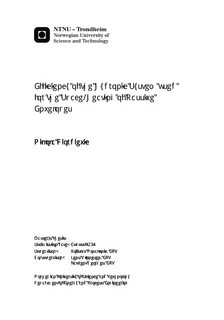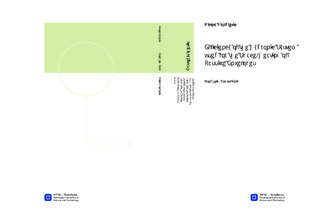| dc.contributor.advisor | Novakovic, Vojislav | nb_NO |
| dc.contributor.advisor | Tønnesen, Jens | nb_NO |
| dc.contributor.advisor | Georges, Laurent | nb_NO |
| dc.contributor.author | Djordjevic, Nikola | nb_NO |
| dc.date.accessioned | 2014-12-19T11:49:39Z | |
| dc.date.available | 2014-12-19T11:49:39Z | |
| dc.date.created | 2012-11-10 | nb_NO |
| dc.date.issued | 2012 | nb_NO |
| dc.identifier | 566906 | nb_NO |
| dc.identifier | ntnudaim:8315 | nb_NO |
| dc.identifier.uri | http://hdl.handle.net/11250/234909 | |
| dc.description.abstract | The aim of this thesis is to determine the efficiency of the hydronic heating system implemented in building with passive envelopes. Thermal losses and energy consumption of the pump are relative values for determining the efficiency.The first step towards this aim is to provide theoretical background for better understanding of the hydronic system. The advantages of this system are also presented.Good knowledge of hydronic systems, first of all, modes of transport of the work fluid and heat distribution into the space, makes a good basis for the next step- designing the system.Once the system is designed, it is possible to create mathematical model. This model together with the input values given enables creation and a running of a simulation program.In the end the results from the simulation are obtained for a typical Norwegian house which satisfies recommendation for the passive house concept.The analyses of our results shows, in spite of the heat losses from the pipes and pump energy consumption, it is feasible to fulfill the prescribed limitations regarding the Passive house energy consumption. Unfortunately, the heat losses values are not negligible and it will eventually disturb thermal comfort.The method derived in this report as well as the simulation program presented can serve as a starting point for future investigation of an assortment of hydronic systems variations. One of the logical choices is certainly a system with insulated pipes. Such system could provide the key advantage of hydronic systems compared to other heating systems. In that way they could present themselves as the best heating solution for future buildings with passive envelopes. | nb_NO |
| dc.language | eng | nb_NO |
| dc.publisher | Institutt for energi- og prosessteknikk | nb_NO |
| dc.subject | ntnudaim:8315 | no_NO |
| dc.subject | IVTDIV Diverse studier ved IVT | no_NO |
| dc.title | Efficiency of the Hydronic System used for the Space-Heating of Passive Envelopes | nb_NO |
| dc.type | Master thesis | nb_NO |
| dc.source.pagenumber | 75 | nb_NO |
| dc.contributor.department | Norges teknisk-naturvitenskapelige universitet, Fakultet for ingeniørvitenskap og teknologi, Institutt for energi- og prosessteknikk | nb_NO |

